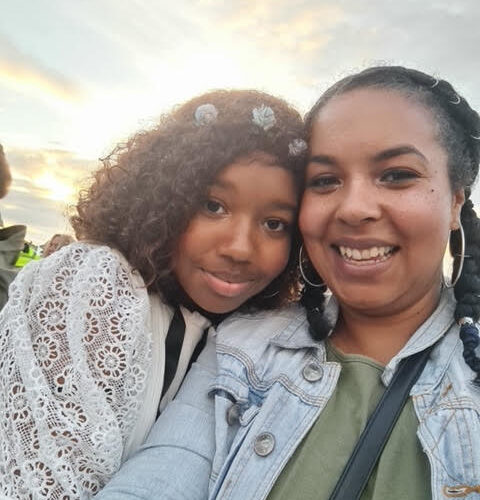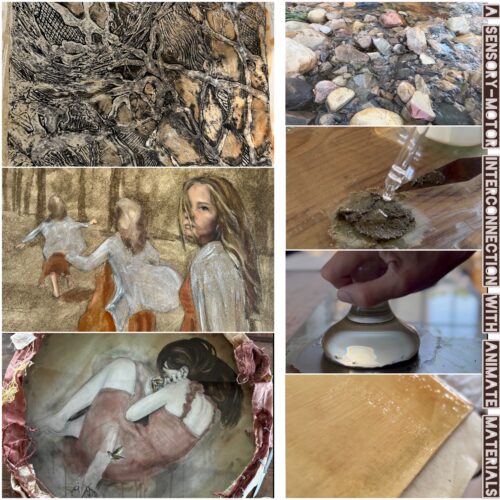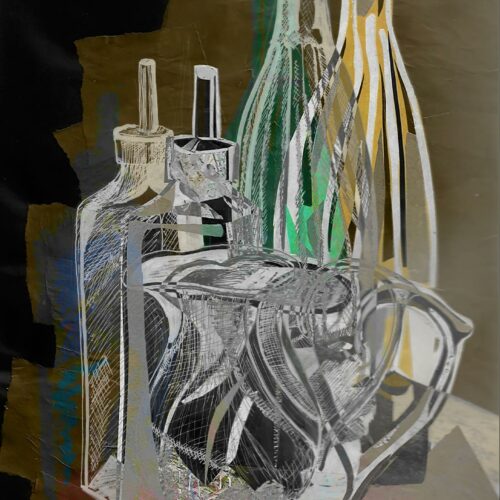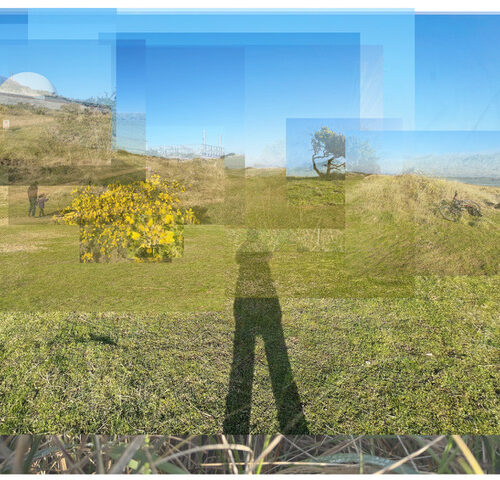
Student Stories: Jessica Higgins
Jessica, you’re now finishing Retrospect and Prospect, your first course at Level Three Creative Writing. Can you tell us about the work you’re doing for your Creative Reading Commentary?
In my essay for I’m keen to investigate an issue that has bothered me all my writing life. Why are black writers always described, in the media and in publishing, as ‘black writers’ while white writers are simply described as ‘writers’? I also want to just be a ‘writer’.
Tell us about the title of the essay, The BAME Box Rebellion.
I want to avoid the BAME box of ‘black writer’ and be judged solely on the quality of my imagination, my dedication, and my obsession with the right words in the right place. All along my writing journey I have struggled to find black authors who have crossed the invisible boundary to write without thought of ethnicity and who believe in the freedom of the individual writer to be a creative individual. I believe writing born out of passion is not dependent on the colour of the writer’s skin, but on the thoughts that pervade the writer’s mind.
You say you have struggled to find black authors who write without reference to their ethnicity.
Researching this topic is very difficult. Everyone wants to talk about black writers writing the black experience. I’m presently looking at The Hate U Give. This YA novel is very appropriate for the time, for the Black Lives Matter movement. Angie Thomas tells the story of what’s happening in the news from an inside perspective. She’s become a spokesperson on behalf of her whole community. It’s an important book, but it’s not the entire picture. Not every black life is like Starr’s. What I want is that more black writers should celebrate their universality. For instance, the themes in J K Rowling’s books include grief, loss, abandonment, friendship and love. They are relevant to everyone of every colour, and that appealed right to the heart of me as a young reader and inspired me to think I could write too. Interestingly, Hermione Granger, a major character, has no race described, so naturally, I assumed that she was black. So did Stephen Bush, writing for the New Statesman in 2015: ‘Unlike Harry Potter or Ron Weasley, [Granger] is never given a skin colour in the books: she has brown eyes, frizzy hair and I, at least, always imagined her as black, partly because, when she wows her fellow pupils at the Yule Ball in Goblet of Fire, she straightens her hair, which was, almost without exception, how in my part of East London, everyone’s older sister prepared for a night out.’
Did you have access to black writers when you were young? A report by the Centre For Literacy in Primary Education revealed that the number of black, Asian and minority ethnic protagonists in children’s books has only increased from 1% in 2017 to 4% in 2018, so there is still a long way to go to achieve representation that reflects the UK population.
I was born in London in 1982 to a white British mother and a black Jamaican father but growing up, the race of an author never crossed my mind. The stories I read —Lewis Carrol, Enid Blyton, The Brothers Grimm — contain very few physical descriptions of the main characters. What impressed me with Alice in Wonderland was Alice’s introspective intelligence. Whether she was brown, or white or black was of no consequence to her adventures in Wonderland.
At the age of 13, I was inspired by Lord of the Flies. The journey of human nature through the thoughts and actions of children, came as a surprise to me. The ease with which the children slipped from light to dark, from good to evil had never occurred to my 13-year-old mind before. Although I had not studied a single text written by an author of colour, I felt that I had been sufficiently introduced to the craft of writing to know that I wanted to live a life of writing and reading books. I had learned that with an imagination for ideas, writing was a skill that could be honed and developed. I studied the power and potential of authors like William Golding without thought to the fact that Golding had a different skin colour to mine.
I can understand that, after living the black experience in a predominantly white community, young black writers might be driven to write about that experience.
I think any person of colour will talk about that soul-crushing conversation with parents, covering the differences in society between you and your white peers, about stereotypes and how you will have to work harder. After it, I felt like, ‘Well, if I have to work harder, maybe it’s not possible for me to join this realm of people writing literature?’ All the ‘greats’ I studied at GCSE and A levels were white. That’s not to take anything away from the quality of their writing but it was difficult to then decide what kind of writer I was going to be because of the limitations the world placed on me.
So are you saying that writing black literature if you’re black is yet another form of pigeon-holing and creates barriers?
We can expect people to write about the black experience. But, after that, why not write the novel which has nothing to do with colour, which is exciting another part of your thinking? I can remember reading Zadie Smith’s White Teeth at eighteen, when it was first published. In an interview with the Guardian she spoke of the pressures she felt after the huge success of her debut novel and that she was ‘expected to be an expert on multicultural affairs, as if multiculturalism is a genre of fiction or something’. In Noughts and Crosses, Malorie Blackman spoke of things outside racism. The book is political and a romance too. Her novel Pig Heart Boy is about current issues, and colour is not at the forefront of the story or the characters.
What I’m asking for is for black writers to speak about this issue directly as Bernadine Evaristo has. In every media outlet, she’s now described as ‘the first black British author to win the Booker prize’, rather than just a ‘Booker Prize winner’ and yet she has been quoted as saying that topics, feelings, emotions are universal. She argued that the idea that writers shouldn’t write other cultures ‘lacks logic’.
Yes, there’s a long quote from one of her talks which continues, ‘‘There is a need for more authors to write about cultures and perspectives that differ from their own. We’re all human, so you have to tap into basic human emotions – as writers, it’s really important to engage with as broad a range of society as possible. One of the reasons why black women aren’t as represented [in literature] is that we’re the only ones who write ourselves. There’s this fear that we shouldn’t step out of our comfort zone, but creating characters is always a challenge and it’s really important to create beyond your own demographic…You do have to write with sensitivity and there may be consequences, but you need to deal with that.”
I think that to describe a writer as black, but not describe a writer as white, feeds into the systematic racism that has existed for hundreds of years. Are we not able to transcend the complexities of race? Is it right that the world of publishing dictates that black authors write black stories and white authors write everything else? That’s why I want to appeal to fellow writers to start refusing to be defined by skin colour. We are writers and it is our writing that should define us.
Does that sum up how you want to be regarded, as a writer?
I guess I am getting the sense of the writer I want to be and don’t want to be, but I still feel conflicted. Yes, there should be more books about black lives written by black authors. But I don’t think every black person needs to write about black lives. I want to be a writer who writes stories about people who could be any colour, just another face in the literary world of fiction, and that is a very different prospect.
Image: Jessica and her daughter Ruby.
|
|







This is really interesting and uplifting. I’m a White British (whatever that means) woman and I can understand the desire to be acknowledged to be making work of universal relevance and for the work not to always be pigeonholed according to one’s identity. Hopefully we will move towards that goal. In the meantime I suspect we will have to put up with the the antagonistic forces of having to continually remind society of identity issues in order to highlight unfairnesses to groups of individuals , and yet at the same time asking that same society to see some of the experiences of that group of people as universal. I don’t know what percentage of the population possesses the cognitive and empathic capacity necessary to balance these two polarities, but one hopes it’s the majority….
if you google – women…you will find pictures of white women (no pictures of diverse women..women are white uless stated otherwise). If you google Black women you get pictures of Black women in various degrees of nakedness and provocative poses. I wrote to google…no response.
Racism is embedded within the language we use and how we use it. I went to a reading with a very famous African author…the audience did not want to know about the content of his novels…but asked him to justify the African Political issues of the day! The fact that Black people can write is for many a difficult concept to grasp.
We are still the ‘add on’ as yet not mainstream. As soon as we write it becomes a social and political challenge to the status quo. All the best!
Thank you for writing about this. It’s a problem in all the creative arts I think and I’m also trying to work out a way to paint from my life (which includes my heritage) without being reduced to just being a ‘brown’ artist.
Good luck with the rest of the course!
A refreshing read. I wish you every success in your writing Jessica.
Thank you for sharing your thoughts and your story Jessica, everybody has their own experiences and perspectives and we must value and respect that individuality. All the best in completing your degree and in your future writing career!
You’re quite right, Jessica – and I hope you keep pushing the point. What I find decidedly odd is that a ‘person of colour’ (so described) is referred to as either ‘black’ or ‘asian’, even though they may, like you, have a white mother and a black father (or the reverse). Yet then describing the person as black seems, in my view, to obliterate the mother. That doesn’t seem right or fair, surely? I used to think that the only way out of this obsession with colour was for us all to be the same colour – for example – a lovely nut brown. Sadly, that seems unlikely to happen; so in the meanwhile we all need to be vigilant about what and where are our prejudices.